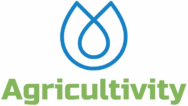Are you considering starting an urban agriculture project but unsure about the best farming method to use? Hydroponics and traditional farming are two popular options, each with their own advantages and disadvantages. In this post, we will explore the pros and cons of both methods for urban agriculture.
Hydroponics is a soilless method of farming that involves growing plants in nutrient-rich water. It offers several benefits for urban agriculture, such as:
- Efficient use of space: Hydroponic systems can be set up in small areas, making them ideal for urban farming projects with limited space.
- Conserves water: Hydroponic systems use up to 90% less water than traditional farming methods.
- Higher yields: Plants grown in hydroponic systems tend to grow faster and produce higher yields than those grown in soil.
- Fewer pests and diseases: Since hydroponic systems are soilless, they are less prone to soil-borne pests and diseases.
However, hydroponics also has some disadvantages, such as:
- Higher startup costs: Hydroponic systems can be expensive to set up compared to traditional farming methods.
- Requires technical knowledge: Hydroponics involves complex technology and requires technical knowledge to operate.
- Requires electricity: Hydroponic systems need electricity to operate pumps, lights, and other equipment, which can increase energy costs.
On the other hand, traditional farming involves growing plants in soil. It has been used for centuries and offers several advantages for urban agriculture, such as:
- Lower startup costs: Traditional farming methods are generally less expensive to set up than hydroponics.
- Familiarity: Traditional farming methods are more familiar to most people and easier to understand.
- Lower energy costs: Traditional farming methods do not require as much electricity as hydroponic systems.
However, traditional farming also has some disadvantages, such as:
- Limited space: Traditional farming methods require more space than hydroponics, making them less ideal for urban agriculture projects with limited space.
- Water usage: Traditional farming methods can use large amounts of water, which can be a problem in water-scarce areas.
- Soil quality: Soil quality can vary widely, and plants grown in low-quality soil may not produce high yields.
In conclusion, both hydroponics and traditional farming have their pros and cons for urban agriculture. The choice ultimately depends on factors such as available space, water availability, and financial resources.





